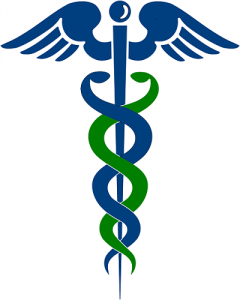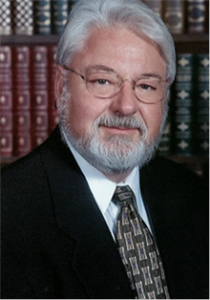
A search of the Medline database yields over 1900 research articles with “Q10 or CoQ10” in the title field and “humans” in the subject field.
Over the years, some Coenzyme Q10 papers have made me sit up and take notice. In this article, I want to share the take-away messages from these papers about Coenzyme Q10 (in its ubiquinone form).
Kalen A, Appelkvist EL, Dallner G. Age-related changes in the lipid compositions of rat and human tissues. Lipids. 1989;24(7):579–584.
Kalen showed that there is a pattern to our human production of Coenzyme Q10 (exclusively in the ubiquinone form). Our body’s synthesis of ubiquinone increases as we grow and develop; it reaches a peak sometime in our early to mid-20s. After that, with increasing age, our body’s synthesis of Q10 begins to decrease. Most of us will certainly need Q10 supplementation from the age of 40 – 45 on.
Weber C, Bysted A, Hølmer G. The Coenzyme Q10 content of the average Danish diet. Int J Vitam Nutr Res 1997;67:123-9.
The average American’s diet is probably no more nutritious than the average Dane’s diet. Weber analyzed the Q10 content in the foods that Danes normally eat. The average Dane’s Q10 intake from food ranged from 3 to 5 milligrams per day. Almost two-thirds of the Q10 intake came from eating meat and poultry. Cereals and fruits and vegetables contributed relatively little Q10. Frying was seen to destroy between 14% and 32% of the Q10 in foodstuffs. Boiling did not seem to destroy the Q10.
Putting the information from the Kalen and Weber papers together, I could see that, at my age, I need a Q10 supplement in order to get sufficient Q10 to my cells.
Folkers K, Vadhanavikit S, Mortensen SA. Biochemical rationale and myocardial tissue data on the effective therapy of cardiomyopathy with coenzyme Q10. Proc Natl Acad Sci U S A 1985;82:901-4.
Dr. Karl Folkers, an American biochemist who did research at Merck and at the University of Texas, was the grand old man of Q10 research. In this early research, Q10 tissue levels were measured in biopsy samples taken from the inner membrane that lines the inside of the chambers of the heart. The Q10 tissue levels were significantly lower in the heart tissue of patients in New York Heart Association classes III and IV (the most severe classes) than in the heart tissue of patients in NYHA classes I and II. Folkers and his team then tested the Q10 tissue levels in patients who had received Q10 supplements. The increases in Q10 tissue levels ranged from 20% to 85%. This paper made me realize the relationship between Q10 levels in the body and the risk of heart failure.
Folkers K, Langsjoen P, Willis R, Richardson P, Xia LJ, Ye CQ, et al. Lovastatin decreases coenzyme Q levels in humans. Proc Natl Acad Sci U S A 1990;87:8931-4.
Dr. Folkers showed that statin medications – medications intended to reduce cholesterol levels – also inhibit the patients’ bio-synthesis of Coenzyme Q10. The use of statins is intended to decrease the risk of heart attack caused by blocked coronary arteries. Dr. Folkers was one of the first researchers to realize that the use of statins without concomitant Q10 supplementation would increase the risk of an energy starved heart muscle and, eventually, heart failure. Q10 is essential for heart muscle function.If you know anyone taking a statin medication, please share this info with him or her.
Morisco, C., Trimarco, B., & Condorelli, M. (1993). Effect of coenzyme Q10 therapy in patients with congestive heart failure: a long-term multicenter randomized study. The Clinical Investigator, 71(8 Suppl), S134-S136.
The Morisco study was the forerunner of the Q-Symbio clinical trial. Morisco hypothesized that congestive heart failure is caused by mitochondrial dysfunction and energy starvation in the heart muscle and, furthermore, that the condition could be ameliorated by Q10 supplementation. In a randomized, double-blind, placebo-controlled study of 641 patients classified as NYHA class III or IV, Morisco found that Q10 supplementation – added to conventional therapy –resulted in significantly fewer hospitalizations, fewer episodes of pulmonary edema and cardiac asthma, and reduced incidence of serious complications in patients with chronic congestive heart failure. Wonderful!
Judy, W.V., Stogsdill, W.W., Judy, D.S., & Judy, J.S. (2007). Coenzyme Q10: Facts or Fabrications? Natural Products Insider. Retrieved from http://www.zmc-usa.com/docs/CoQ10_Facts_or_Fabrications.pdf
There is no other three-page paper that is so filled with useful information about Coenzyme Q10 and its safety, absorption, and efficacy. In this paper, Dr. Judy goes through the basics of the fat-soluble Q10 molecule itself, the absorption of Q10 as single molecules (not as crystals), the transport of Q10 through the lymph to the blood and then to the tissues, the redox conversion of ubiquinone to ubiquinol and back again, the measurement of the bioavailability of Q10, and the functions of ubiquinone (cellular energy production) and ubiquinol (antioxidant protection).
Shults CW, Oakes D, Kieburtz K, et al. Effects of coenzyme Q10 in early Parkinson disease: evidence of slowing of the functional decline. Arch Neurol. 2002;59(10):1541-1550
Huntington Study Group. A randomized, placebo-controlled trial of coenzyme Q10 and remacemide in Huntington’s disease. (2001). Neurology, 57(3), 397-404.
Shults’ study was important for two reasons: it showed that Q10 was safe in a very high dosage, 1200 mg/day, for a period of 16 months, and it showed that Q10 might help to slow the progression of neuro-degenerative disorders. The Huntington Study Group data showed no adverse effects of Q10 dosages of 600 mg/day for 30 months. These two papers showed Q10 to be safe at levels much higher than were needed to produce significant beneficial effects in the Q-Symbio clinical trial.
Rosenfeldt, FL et al. Coenzyme Q10 in the treatment of hypertension: A meta-analysis of the clinical trials. Journal of Human Hypertension, 2007, 21: 297-306.
Rosenfeldt did a meta-analysis of 12 studies that had enrolled 362 patients with high blood pressure. He showed that Q10 supplementation reduced both systolic blood pressure and diastolic blood pressure significantly without any adverse effects.
More recent Q10 papers
Elsewhere on this website, I have written about the results of the gold standard studies of the effects of Q10 supplementation.
Mortensen, S. A., et al. (2014). The effect of coenzyme Q10 on morbidity and mortality in chronic heart failure: results from Q-Symbio: a randomized double-blind trial.
“Long-term CoQ10 treatment of patients with chronic HF is safe, improves symptoms, and reduces major adverse cardiovascular events.”
Alehagen U, et al. (2013). Cardiovascular mortality and N-terminal-proBNP reduced after combined selenium and coenzyme Q10 supplementation.
“Long-term supplementation of selenium/coenzyme Q10 reduces cardiovascular mortality.”
Golomb, B. (2014). CoQ10 and Gulf War illness.
“Q10 conferred benefit to physical function and symptoms in veterans with Gulf War illness.”
I have also written about the three big meta-analyses of Q10 studies in heart failure, which provide solid documentation of the beneficial effect of Q10 supplementation.
Soja, A.M. and Mortensen, S.A. (1997) Treatment of congestive heart failure with coenzyme Q10 illuminated by meta-analyses of clinical trials.
Sander, S. et al. (2006). The impact of coenzyme Q10 on systolic function in patients with chronic heart failure.
Fotino, A. D. et al. (2013). Effect of coenzyme Q₁₀ supplementation on heart failure: a meta-analysis.
The bottom line
Coenzyme Q10 supplements (in the ubiquinone form) have been extensively researched for over 30 years and have been found to be safe and to have significant beneficial effects, particularly in patients with chronic heart failure, patients taking statin medications, and patients with hypertension.










Leave A Comment